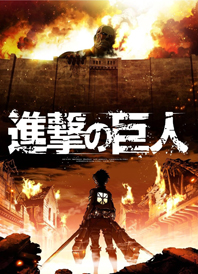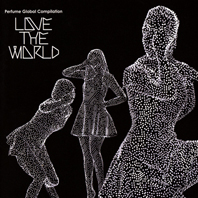Lesson 10: Health and Emergency
Expressions
| Health problems | ||
|---|---|---|
| I don't feel well. | Karada no guai ga warui desu. | |
| What's wrong? | Doko ga warui desuka? | |
| Is there a pharmacy nearby? | Chikaku ni yakkyoku wa ari masuka? | |
| I want to go to the hospital. | Byōin e iki taidesu. | |
| Are you all right? | daijōbu desuka? | |
| It's not a big deal. | Taishitakoto arimasen. | |
| Take care. | Odaijini. | |
karada: body guai: condition warui: bad chikaku: nearby yakkyoku: pharmacy byōin: hospital odaijini: Used only to the person who is sick or injured. |
||
| Body parts | ||
|---|---|---|
| head, eye, ear, nose, mouth | atama, me, mimi, hana, kuchi | |
| neck, arm, hand, leg | kubi, ude, te, ashi | |
| chest, back, belly, lower back | mune, senaka, hara, koshi | |
| brain, heart, stomach, lung | no, shinzo, i, hai | |
| Symptoms | ||
|---|---|---|
| I caught a cold. | Kaze o hiite imasu. | |
| I have a fever. | Netsu ga ari masu. | |
| I have a headache. | Atama ga itai desu. | |
| I feel nauseous. | Hakike ga shimasu. | |
| I have diarrhea. | Geri o shite imasu. | |
| It's swelled. | Harete imasu. | |
| It's itchy. | Kayui desu. | |
kaze: cold / kaze o hiku: catch a cold netsu: fever, heat itai: it pains, it hurts, painful hakike: nausea geri: diarrhea hareru: to swell kayui: it itches |
||
| Injury | ||
|---|---|---|
| I got hurt. | Kega o shi mashita. | |
| I got burned. | Yakedo o shi mashita. | |
| I had a tumble. | Korobi mashita. | |
| I banged my head. | Atama o butsuke mashita. | |
| I cut myself with a knife. | Naifu de kiri mashita. | |
| I'm bleeding. | Chi ga dete imasu. | |
kega: injury yakedo: burn krobu: to have a tumble, to fall down butsukeru: to bang, to bump naifu: knife kiru: to cut chi: blood / chi ga deru: to bleed |
||
| At the pharmacy | ||
|---|---|---|
| How many hours will this medicine be effective? | Kono kusuri wa nan-jikan kurai kiki masuka? | |
| Take twice a day after meals. | Ichi-nichi ni-kai, shokugo ni non de kudasai. | |
| cold medicine, headache pills, antidiarrheal | kazegusuri, zutsu yaku, geri dome | |
| antiseptic, band-aid, insect-repelling spray | shodoku yaku, bandoeido, mushiyoke supure | |
kusuri: medicine kiku: to effect, to be effective shokugo: after the meal shokuzen: before the meal |
||
| At the hospital | ||
|---|---|---|
| Surgery has to be performed at once. | Sugu ni shujutsu ga hitsuyō desu. | |
| 3 days hospitalization is needed. | Mikka-kan nyūin ga hitsuyō desu. | |
| The treatment takes a week. | Chiryō wa isshu-kan kakarimasu. | |
| Can I use the travel insurance? | Ryokō hoken wa tsukae masuka? | |
suguni: at once, right away shujutsu: surgery, operation hitsuyō: necessary, in need nyūin: hospitalization chiryō: medical treatment ryokō hoken: travel insurance (ryokō: travel + hoken: insurance) tsukau: to use |
||
| Lost property |
||
|---|---|---|
| I left my bag in the train. | Densha ni kaban o okiwasure mashita. | |
| What should I do? | Dō shitara iidesuka? | |
| It's good to talk to a station staff. | Ekiin ni sodan suruto iidesuyo. | |
| It may be found. | Mitsukaru kamo shiremasen. | |
| We will contact you if it is found. | Moshi mitsuka ttara, renraku shimasu. | |
densha: train kaban: bag okiwasureru: leave (oku: to put + wasureru: to forget) do sureba iidesuka?: Used to ask what you should do. ekiin: station staff sōdan suru: to consult mitsukaru: to be found mitsukeru: to find moshi: if renraku suru: to contact, to get in touch |
||
Basic Rules verb (u) + kamo shiremasen = may _. (mentioning about the possibility) Change the ending "i" to "u" and add "kamo shiremasen". Examples: iki masu (I go) / iku kamo shiremasen (I may go, Maybe I go), Kanojo ni ai masu (I see her) / Kanojo ni au kamo shiremasen (I may see her, Maybe I see her). Moshi + verb + tara (ttara) = If _. Change the ending "i" to "u" and add "kamo shiremasen". Examples: tabe masu (I eat) / moshi tabe tara (If I eat), kai masu (I buy) / Moshi ka ttara (If I buy). |
||
| At the police |
||
|---|---|---|
| My baggage was stolen. | Nimotsu o nusuma re mashita. | |
| I was cheated and got stolen my money. | Damasarete, okane o tora re mashita. | |
| I lost my wallet. | Saifu o nakushi mashita. | |
| Where is the police box? | Koban wa doko desuka? | |
| What happened? | Dōshimashitaka? | |
koban: police box, police station saifu: wallet, purse nakusu: to lose nimotsu: baggage, belongings nusumu: to steal, to rob damasu: to cheat okane: money toru: to take, to steal |
||
Basic Rules verb (a) + re mashita = passive form (past tense) Change the ending vowel "i" to "a" and add "re mashita". Examples: nusumi masu (I steal) / nusuma re mashita (I was stealed), kiri masu (I cut) / kira re mashita (I was cut). |
||
| Emergency | ||
|---|---|---|
| Please help. | Tasukete kudasai. | |
| Please call an ambulance. | Kyukyusha o yonde kudasai. | |
| Please call the police. | Keisatsu o yonde kudasai. | |
| My friend got serious injury. | Tomodachi ga ōkega o shimashita. | |
| My friend got terrible disease. | Tomodachi ga hidoi byoki desu. | |
tasukeru: to help kyukyusha: ambulance yobu: to call (to come) keisatsu: police ōkega: serious injury hidoi: terrible byoki: disease, illness |
||











